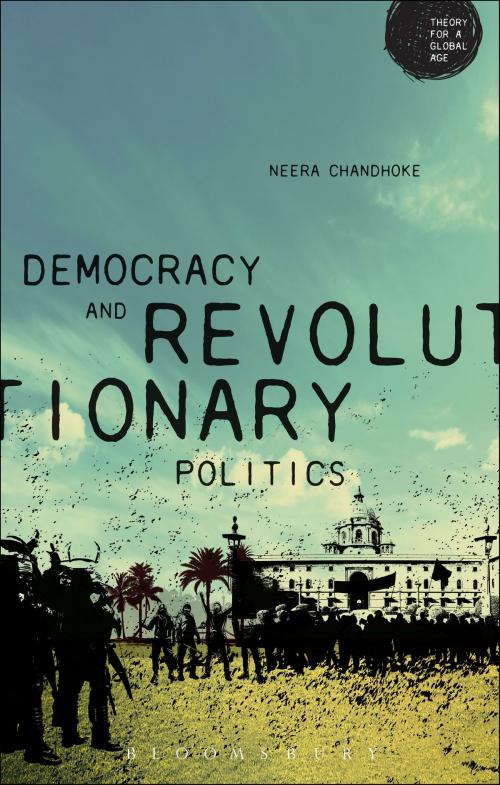Democracy and Revolutionary Politics
Nonfiction, Social & Cultural Studies, Political Science, Government, Communism & Socialism, Democracy, Religion & Spirituality, Philosophy, Political| Author: | Neera Chandhoke | ISBN: | 9781474224031 |
| Publisher: | Bloomsbury Publishing | Publication: | February 26, 2015 |
| Imprint: | Bloomsbury Academic | Language: | English |
| Author: | Neera Chandhoke |
| ISBN: | 9781474224031 |
| Publisher: | Bloomsbury Publishing |
| Publication: | February 26, 2015 |
| Imprint: | Bloomsbury Academic |
| Language: | English |
Democracy and political violence can hardly be considered conceptual siblings, at least at first sight. Democracy allows people to route their aspirations, demands, and expectations of the state through peaceful methods; violence works outside these prescribed and institutionalized channels in public spaces, in the streets, in the forests and in inhospitable terrains. But can committed democrats afford to ignore the fact that violence has become a routine way of doing politics in countries such as India?
By exploring the concept of political violence from the perspective of critical political theory, Neera Chandhoke investigates its nature, justification and contradictions. She uses the case study of Maoist revolutionaries in India to globalize and relocate the debate alongside questions of social injustice, exploitation, oppression and imperfect democracies. As such, this is an important and much-needed contribution to the dialogue surrounding revolutionary violence.
Democracy and political violence can hardly be considered conceptual siblings, at least at first sight. Democracy allows people to route their aspirations, demands, and expectations of the state through peaceful methods; violence works outside these prescribed and institutionalized channels in public spaces, in the streets, in the forests and in inhospitable terrains. But can committed democrats afford to ignore the fact that violence has become a routine way of doing politics in countries such as India?
By exploring the concept of political violence from the perspective of critical political theory, Neera Chandhoke investigates its nature, justification and contradictions. She uses the case study of Maoist revolutionaries in India to globalize and relocate the debate alongside questions of social injustice, exploitation, oppression and imperfect democracies. As such, this is an important and much-needed contribution to the dialogue surrounding revolutionary violence.















